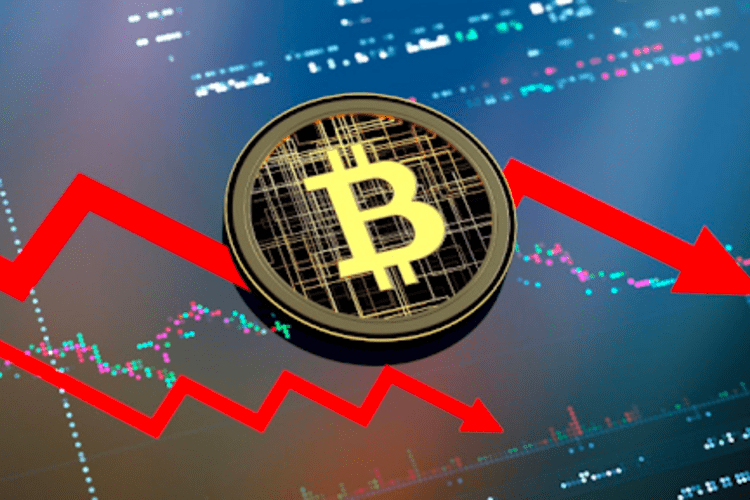Reasons to Invest In The Meantime Of Crypto Market Downturn

The crypto market is now going through a particularly tough period, like many other markets throughout the globe.
Bitcoin's value fell to $17,592.78 in mid-June due to a sell-off, the first time it has fallen below $20,000 since December 2020. Similarly, the price of Ether has plummeted by more than 70% from its all-time high in November of last year.
Following TerraUSD's and Luna's May collapse, other crypto lenders, notably the US-based Celsius Network, froze withdrawals to calm investors. In other developments: Coinbase, the biggest cryptocurrency exchange in the United States, has announced intentions to cut roughly 18 percent of its personnel, saying it had expanded too rapidly (they also cited inflationary pressures and the prospect of a global recession).
Even if they haven't invested a penny in cryptocurrency yet, most individuals have heard of it in the last few years. Is it a good time to invest in cryptocurrencies? How will the cryptocurrency market fare after the current downturn?
Possible reasons for the crypto market crash
Late in June, Bitcoin (BTC) dropped 30% in a week to around $21,000, which was at least an improvement after its collapse to $18,000. As an example, Bitcoin was trading for $69,000 in November 2021. The price of Ethereum (ETC) is at $1540, a decline of almost 70% from its prior highs. Losses of this magnitude are unavoidable when the market falls by more than half.
This isn't as bad as the Bitcoin meltdown of 2018 when the cryptocurrency lost 80% of its value, but analysts warn that things might become much worse for those who still own BTC.
It's been a terrible year and month for the digital currency markets. Over the last two months, their value has plummeted by more than half. Because there are many investors who rely on cryptocurrencies, the increased volatility and uncertainty in the marketplace became a huge problem for them. One of the best solutions for traders are the crypto trading signals, which allows them to get more informed when there is a right time of buying or selling a digital currency. With the use of them, they can save time and get the most out of their trading process.
Devaluation is not unique to the cryptocurrency industry. There is a lot of interest in the overall equities market, as the SP500 stock market index has lost 23% this year. Interest rates are rising all throughout the globe, which increases the cost of money in all markets.
Coinciding with the crypto market's demise are record-high inflation, anxiety, a rise in interest rates, and a lack of faith. Crypto market faults aren't really to blame for the majority of the reasons cited by analysts, who believe they're "macro."
"The markets are teetering on the edge of panic. A severe recession and numerous rate rises have already been included in the market's expectations. We are in the total risk-off mode for all assets, just as we were in risk-on mode,"
– Abra CEO Bill Barhydt said in an interview with MarketWatch.com recently.
Oleg Giberstein, the co-founder of Coinrule, an automated crypto trading platform, believes that crypto is experiencing the same challenges as the rest of the economy, which is why prices are falling.
Cryptocurrency is just a small part of the problem; the economy will continue to decline for at least six to 12 months. Slow economic growth and rising inflation have put Central Banks in a predicament. Away from "risk-on" assets like bitcoin and tech stocks, investors are fleeing.
On the question of long-term trends versus short-term fluctuations, Giberstein thinks the market might stay difficult for up to two years, although he cautioned that things could become worse during this period.
Should you invest money in cryptos right now?
The idea behind "buying the dip" is based on the premise that price declines are only transitory and will be reversed over time. By purchasing at a bargain during dips and enjoying the benefits when prices rise again, dip buyers seek to profit.
Investing in cryptocurrencies at any time, much alone during a price drop that might turn into a long-term trend, is fraught with peril due to the volatility of the crypto markets. Much if prices rise to former levels, they might potentially fall more and put your investment at risk.
Coinciding with the growth of the retail sector and the abundance of money available for investment, cryptocurrencies became a popular investment vehicle. Investors in the "retail market," which refers to those who aren't well-educated about investing in the stock market but who don't have a lot of money, were particularly interested in the high returns.
In such a market, where growth is driven only by the influx of new money, users or investors, and not by increases in the underlying value, it is inevitable that the number of people who may participate would dwindle as time goes on. Market uncertainty and rising interest rates intensify this problem, and we're witnessing both trends in today's markets.
It's not like the stock market, which has a long history of ups and downs, with stock exchanges being established in the United States in the late 1790s. The history of bear and bull markets throughout the centuries provides investors with a sense of security.
It's possible that investors may have to "wait for the market to melt," as the saying goes. Many investors may be reluctant to engage in crypto because of the recent crisis and the looming recession. It's possible that the current drop (or collapse, depending on your viewpoint) might rebound as it did last year when prices plummeted to comparable levels before rebounding and even peaking in the spring. However, it is possible that they will not.